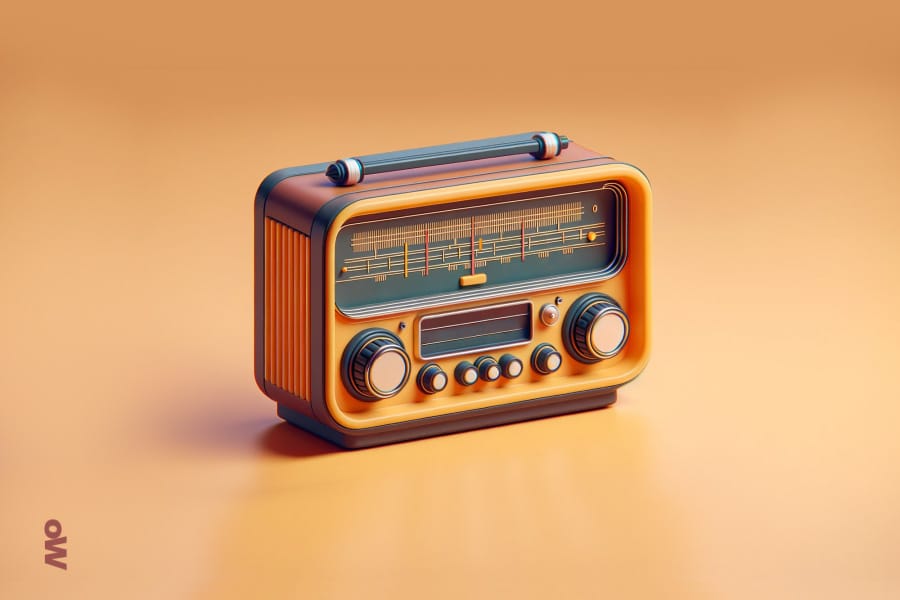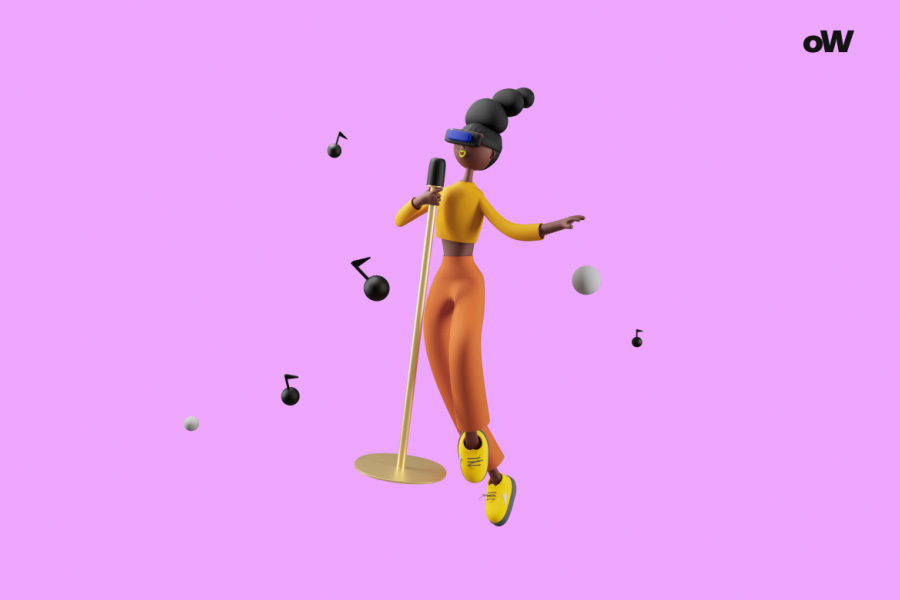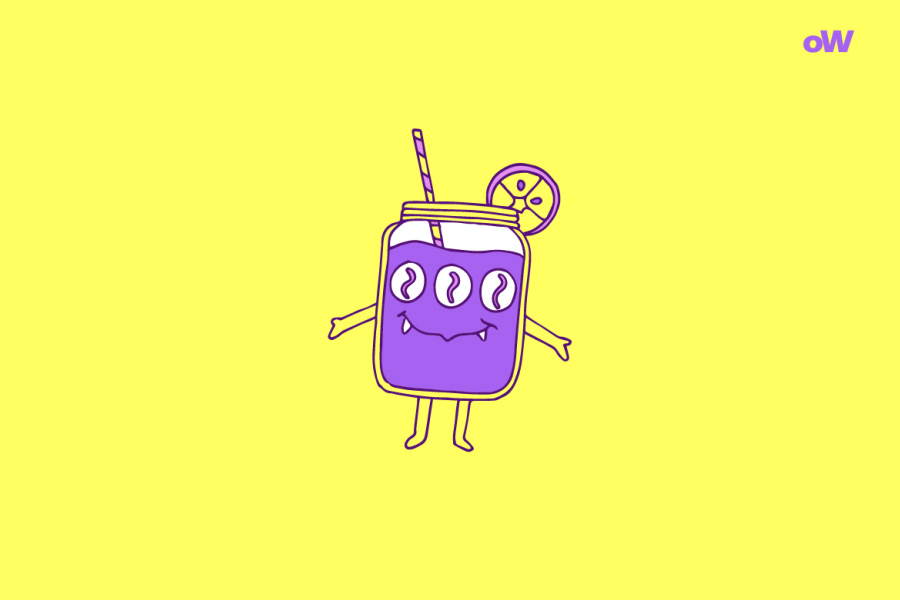Quiz: What Music Genre Am I?

As a child, I thought there were only three types of music: the kind you dance to, the kind you cry to, and the kind my dad plays in the car. Now I know that there are more musical genres than shades in an artist’s palette. And each person has their own unique musical color code. The quiz we’ve developed is a way to decode this pattern.
What Are Musical Genres?
Musical genres are a fascinating phenomenon that goes far beyond simple classification. Imagine a vast musical library where each genre is a separate room with its own atmosphere, history, and character. In one room, African drums that gave birth to rhythm and blues are playing; in another, medieval church chants that influenced the development of classical music echo through the space.
Each genre has its own unique musical vocabulary. Take jazz, for instance, with its syncopated rhythms and improvisational solos – it’s an entire language that musicians use to communicate with each other right during the performance. And metal uses special guitar techniques like palm muting and sweep picking, creating its distinctive sound reminiscent of a dragon roaring through a wall of sound.
It’s fascinating to trace how genres influence each other. When Bob Dylan first picked up an electric guitar at the Newport Folk Festival, it caused a real scandal. But it was exactly such bold experiments that led to the emergence of folk-rock. And when DJs started mixing funk records at block parties in the Bronx, they had no idea they were laying the foundation for hip-hop.
Why Do Musical Genres Resonate With Us?
The connection between humans and music runs much deeper than it might seem at first glance. Each genre touches certain strings of our soul, creating a unique emotional response and forming special neural connections in the brain. Like ancient philosophers, we search for answers to eternal questions in music.
Music’s Impact on Personality and Mood
Sound waves affect us at the deepest, physiological level. When we hear our favorite song, dopamine is released in the brain – the same hormone that’s produced when eating delicious food or exercising. Musical vibrations literally resonate with our body: we feel low bass frequencies in our chest, while high sounds can give us goosebumps.
Each genre affects us differently. Experiments show that dubstep, with its sharp bass drops, can trigger an adrenaline rush comparable to riding a roller coaster. And Gregorian chants, thanks to their special rhythm and frequency, can synchronize brain waves and aid in meditation.
Individuality and Musical Taste
Our musical preferences are shaped by numerous factors. Cultural context plays a huge role – if you grew up in a family where jazz was played, you’re likely to learn to appreciate complex harmonic structures. But this doesn’t mean tastes are predetermined – they constantly evolve.
Researchers from Cambridge University discovered an interesting pattern: people who prefer minor keys often possess more developed empathy. And fans of experimental music typically excel at abstract thinking. However, correlation doesn’t imply causation – perhaps certain personality traits simply draw us to corresponding music.
How Does Our Quiz Work?
The quiz is based on a complex algorithm that takes multiple parameters into account. We analyze not only explicit preferences but also subconscious reactions. For example, it matters what time of day you usually listen to music – this can indicate certain psychological patterns.
Some questions might seem unexpected: “What colors do you prefer?”, “How do you react to sudden sounds?” The thing is, our perception of music is closely connected to other senses. Synesthesia – the ability to “see” music in color or “taste” it – is present to some degree in many people.
Popular Musical Genres and Their Features
Behind each musical genre stands its own philosophy, cultural context, and technical foundation. From minimalist techno to multi-layered orchestral compositions – each style offers its unique way of perceiving sound matter.
Pop and Its Universality
Pop music is a real sound laboratory where new musical formulas are tested. Producers study neuromarketing and psychoacoustics to create maximally “catchy” melodies. Modern pop is incredibly diverse: K-pop with its complex choreography and multi-layered arrangements is very different from minimalist Scandinavian electropop.
Interestingly, even a “simple” pop song can contain dozens of sound tracks. For example, Billie Eilish’s hit “bad guy” uses samples of an Australian pedestrian crossing signal and a bed squeak. Such subtle details create a unique sound texture.
Rock – The Voice of Freedom and Energy
Rock music is an entire universe of sounds built around the electric guitar. From Bob Dylan’s ringing chords to Nirvana’s distorted grunge, from Pink Floyd’s psychedelic experiments to King Crimson’s mathematical precision – each rock direction reflects a certain worldview.
Distortion plays a huge role in rock. Early guitarists accidentally discovered that an overdriven amplifier produces an interesting effect, and they began intentionally using distortion. Today there are hundreds of effect pedals, each capable of radically changing an instrument’s sound.
Classical – Choice for Deep Thinkers
Classical music isn’t a frozen museum but a living organism. Contemporary composers continue to experiment with form and content. Max Richter reinterprets Vivaldi’s “Four Seasons” through the lens of minimalism, while John Adams combines classical orchestra with electronics.
The perception of classical music changes over time. What seemed revolutionary in Stravinsky’s time (the premiere of “The Rite of Spring” caused riots in the hall) sounds quite organic today. Meanwhile, ancient music can unexpectedly resonate with modernity – baroque pieces often use the same harmonic progressions as pop hits.
Hip-Hop – The Rhythm of the Streets
Over recent decades, hip-hop has made an amazing journey from underground culture to the main musical direction of our time. Rappers experiment with jazz samples and classical arrangements, blurring genre boundaries. Kendrick Lamar records albums with live musicians, while Tyler, The Creator creates his own harmonic worlds.
Word crafting in hip-hop deserves special attention. Rappers use complex rhyme schemes, alliterations, and multi-layered metaphors. Some tracks can be analyzed like poetry – it’s no coincidence that many universities include hip-hop studies in their contemporary literature programs.
Electronic Music – Freedom of Sound
Electronic music constantly pushes the boundaries of what’s possible. Modern producers use artificial intelligence to create new timbres, experiment with generative music, and create interactive compositions that change depending on listener actions.
Live performances of electronic musicians are a separate story. Unlike traditional instruments, synthesizers and drum machines allow complete reconstruction of a composition during performance. Some artists create their own instruments and controllers, turning each concert into a unique technological show.
In Conclusion
Musical genres aren’t just labels in a streaming service but living, evolving organisms. They reflect our inner world and help us better understand ourselves. Taking our quiz, you’re not just finding out which genre is closest to you – you’re embarking on a fascinating journey through your own musical consciousness.
Perhaps the results will surprise you or confirm what you’ve long suspected. Either way, remember: musical preferences are part of your unique personality. They can change over time, reflecting your growth and development. The main thing is to remain open to new experiences and not be afraid to experiment with sound.
After all, music is one of the most amazing ways to explore the world and yourself. It helps us express what cannot be conveyed in words, connects people across linguistic and cultural barriers, and becomes a universal language of human emotions.
Disclaimer
This quiz is designed for entertainment purposes only. The results are not scientifically validated and do not constitute professional advice or assessment. The quiz results are meant to be fun and should not be used as a basis for any life decisions or as a substitute for professional consultation. If you need personalized guidance, please consult with appropriate qualified professionals.
Questions Overview
- At full volume
- On headphones while walking
- At parties with friends
- In the car with windows down
- Lyrics that connect
- A melody that makes you dance
- A special mood
- Powerful sound
- Electric guitar
- Synthesizer
- Acoustic guitar
- Drum machine
- Big stadium
- Trendy club
- Cozy bar
- City square
- Freedom and rebellion
- Love and relationships
- Life and social issues
- Personal experiences
- Headbang to the rhythm
- Dance
- Close your eyes and immerse yourself
- Read along with the lyrics
- With cool special effects
- Live performance
- With an interesting story
- With unique artistic concept
- Mosh pit
- Light shows and confetti
- Graffiti artists
- Photo zones and art installations
- In popular music playlists
- In underground groups
- From friends
- At concerts
- Black t-shirt with band logo
- Bright hoodie with print
- Pins and patches
- Cap or bandana
- Artist's energy
- Dance show
- Audience interaction
- Venue atmosphere
- Beer
- Cocktail
- Energy drink
- Water or juice
- Wild crowd energy
- Fun and celebration
- Street culture
- Creative gathering
- Song lyrics
- New music recommendations
- Popular tracks charts
- Band information
- Virtuoso guitarist
- Pop star
- MC or rapper
- Independent musician






